| Listing 1 - 10 of 106 | << page >> |
Sort by
|
Book
ISBN: 0722170289 9780722170281 Year: 1983 Publisher: London : Sphere,
Abstract | Keywords | Export | Availability | Bookmark
 Loading...
Loading...Choose an application
- Reference Manager
- EndNote
- RefWorks (Direct export to RefWorks)
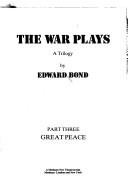
ISBN: 0413572404 0413597903 Year: 1985 Volume: 28 A-B Publisher: London Methuen
Abstract | Keywords | Export | Availability | Bookmark
 Loading...
Loading...Choose an application
- Reference Manager
- EndNote
- RefWorks (Direct export to RefWorks)
Nuclear warfare --- Guerre nucléaire --- Drama --- Théâtre (Genre littéraire) --- -Atomic warfare --- CBR warfare --- Nuclear strategy --- Nuclear war --- Thermonuclear warfare --- War --- Nuclear crisis control --- Nuclear weapons --- -Drama --- Guerre nucléaire --- Théâtre (Genre littéraire) --- -733 --- Atomic warfare --- Theater - Engels
Book
ISBN: 3030455947 3030455939 Year: 2020 Publisher: Cham : Springer International Publishing : Imprint: Palgrave Pivot,
Abstract | Keywords | Export | Availability | Bookmark
 Loading...
Loading...Choose an application
- Reference Manager
- EndNote
- RefWorks (Direct export to RefWorks)
This book explores how nuclear weapons influence conventional warfighting, through three case studies of countries not party to the Non-Proliferation Treaty - Pakistan, India, and Israel. The author examines how decision makers choose a preferred pattern of war management, as well as how these choices affect conflicts, suggesting that nuclear weaponization constitutes a clear change in the relative power of countries. This distribution of power within the international system expands or reduces the selection of strategies or war management patterns available to members of the international community. However, historic traumatic events like military defeats, countries’ self-images, and images of enemies form the perceptions of decision makers regarding material power and change thereof, suggesting that choices of decision makers are not affected directly by changes in relative power relations, but rather through an intermediate level of strategic culture parameter. Igor Davidzon is a Postdoctoral Research Fellow in the Center for Transnational Relations, Foreign and Security Policy at Freie Universität Berlin, Germany.
Nuclear warfare --- Social aspects. --- Atomic warfare --- CBR warfare --- Nuclear strategy --- Nuclear war --- Thermonuclear warfare --- War --- Nuclear crisis control --- Nuclear weapons --- Atomic warfare and society --- Security, International. --- International Security Studies. --- Collective security --- International security --- International relations --- Disarmament --- International organization --- Peace
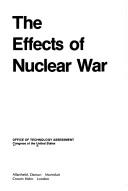
ISBN: 0916672360 9780916672362 Year: 1980 Publisher: Allanheld, Osmun
Abstract | Keywords | Export | Availability | Bookmark
 Loading...
Loading...Choose an application
- Reference Manager
- EndNote
- RefWorks (Direct export to RefWorks)
Nuclear warfare. --- Nuclear warfare --- Atomic warfare --- CBR warfare --- Nuclear strategy --- Nuclear war --- Thermonuclear warfare --- War --- Nuclear crisis control --- Nuclear weapons
Book
ISBN: 3406060382 Year: 1986 Publisher: München Beck
Abstract | Keywords | Export | Availability | Bookmark
 Loading...
Loading...Choose an application
- Reference Manager
- EndNote
- RefWorks (Direct export to RefWorks)
872 Massavernietigingswapens --- 871 Conventionele wapens --- 873 Wapenbeheersing --- -Atomic warfare --- Nuclear warfare --- Moral and ethical aspects. --- Moral and ethical aspects
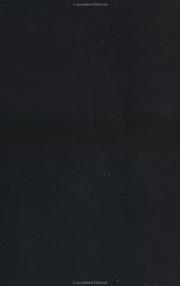
ISBN: 020395291X 1135350124 9781135350123 0415936594 9780415936590 0415936608 9780415936606 9780203952917 9781135350192 9781135350260 1135350191 Year: 2002 Publisher: New York Routledge
Abstract | Keywords | Export | Availability | Bookmark
 Loading...
Loading...Choose an application
- Reference Manager
- EndNote
- RefWorks (Direct export to RefWorks)
Unfathomably merciless and powerful, the atomic bomb has left its indelible mark on film. In Atomic Bomb Cinema, Jerome F. Shapiro unearths the unspoken legacy of the bombing of Nagasaki and Hiroshima and its complex aftermath in American and Japanese cinema. According to Shapiro, a ""Bomb film"" is never simply an exercise in ideology or paranoia. He examines hundreds of films like Godzilla, Dr. Strangelove, and The Terminator as a body of work held together by ancient narrative and symbolic traditions that extol survival under devastating condition
Nuclear warfare in motion pictures. --- Science fiction films --- Motion pictures --- Atomic warfare in motion pictures --- History and criticism. --- History.
Book
ISBN: 1786804395 9781786804389 1786804387 9781786804402 1786804409 9781786804396 9780745339214 9780745339207 0745339204 0745339212 0745339204 9780745339207 Year: 2019 Publisher: London : Pluto Press,
Abstract | Keywords | Export | Availability | Bookmark
 Loading...
Loading...Choose an application
- Reference Manager
- EndNote
- RefWorks (Direct export to RefWorks)
Nuclear weapons --- History. --- Nuclear warfare --- Atomic warfare --- CBR warfare --- Nuclear strategy --- Nuclear war --- Thermonuclear warfare --- War --- Nuclear crisis control
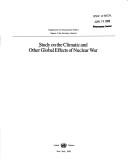
ISBN: 9211421446 Year: 1989 Volume: vol 18
Abstract | Keywords | Export | Availability | Bookmark
 Loading...
Loading...Choose an application
- Reference Manager
- EndNote
- RefWorks (Direct export to RefWorks)
Nuclear warfare --- -Atomic warfare --- CBR warfare --- Nuclear strategy --- Nuclear war --- Thermonuclear warfare --- War --- Nuclear crisis control --- Nuclear weapons --- Environmental aspects --- Nuclear weaponsEnvironmental aspects --- -Environmental aspects
Book
ISBN: 3492005373 9783492005371 Year: 1982 Volume: 237 Publisher: München : R. Piper,
Abstract | Keywords | Export | Availability | Bookmark
 Loading...
Loading...Choose an application
- Reference Manager
- EndNote
- RefWorks (Direct export to RefWorks)
World politics --- Atomic bomb --- Atomic warfare --- Politique mondiale --- Bombe atomique --- Guerre nucléaire --- Moral and ethical aspects --- Aspect moral --- Nuclear warfare --- Guerre nucléaire --- Moral and ethical aspects.
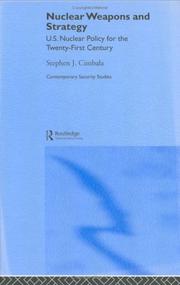
ISBN: 1280361069 9786610361069 0203087372 9780203087374 9780415701990 0415701996 0415701996 9781135990404 9781135990442 9781135990459 9780415650502 1135990441 Year: 2005 Publisher: Abingdon [England] New York Routledge
Abstract | Keywords | Export | Availability | Bookmark
 Loading...
Loading...Choose an application
- Reference Manager
- EndNote
- RefWorks (Direct export to RefWorks)
Nuclear weapons, once thought to have been marginalized by the end of the Cold War, have returned with a vengeance to the centre of US security concerns and to a world bereft of the old certainties of deterrence. This is a major analysis of these new strategic realities. The George W. Bush administration, having deposed the regime of Saddam Hussein in Iraq, now points to a new nuclear ""Axis of Evil"": Iran and North Korea. These nations and other rogue states, as well as terrorists, may pose key threats because they are ""beyond deterrence"", which was based on the credible f
Nuclear warfare. --- World politics --- United States --- Military policy. --- Atomic warfare --- CBR warfare --- Nuclear strategy --- Nuclear war --- Thermonuclear warfare --- War --- Nuclear crisis control --- Nuclear weapons
| Listing 1 - 10 of 106 | << page >> |
Sort by
|

 Search
Search Feedback
Feedback About UniCat
About UniCat  Help
Help News
News